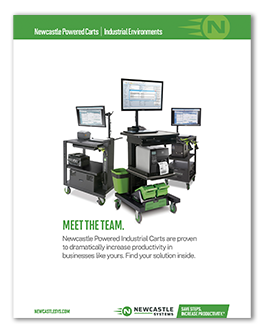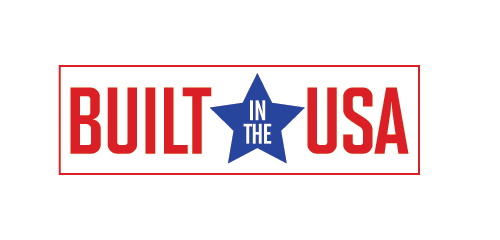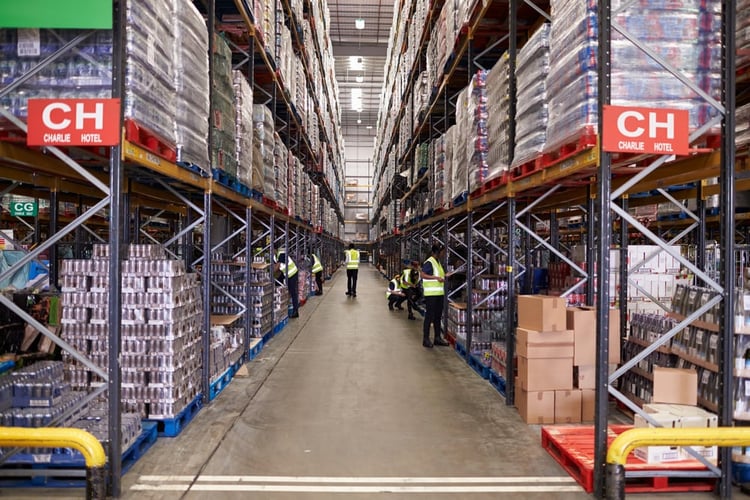
According to the Centers for Disease Control and Prevention, about 1 in 6 people in the U.S., or roughly 48 million Americans, become hospitalized annually due to foodborne illnesses. And about 3,000 die each year from foodborne diseases. These are tragedies that are largely preventable, which is something the government has set out to do through regulation.
If you store and fulfill orders for food products in your warehouse, your business is subject to certain regulations. One of those is the Food Safety and Modernization Act (FMSA). Are you complying with this regulation? Here's what you need to know about its requirements and some tips to help your warehouse maintain compliance.
What is the Food Safety Modernization Act?
The Food Safety Modernization Act was introduced by the U.S. Food and Drug Administration in 2011. The FDA ensures that all food products not subject to regulation by the Food Safety and Inspection Services (FSIS), such as poultry, meat, and processed eggs, are sanitary and safe for public consumption. FMSA requirements apply to manufacturers, transporters, and warehouses. The regulations are meant to prevent contamination by improving food safety practices.
Requirements of the FSMA
In general, all facilities that receive, store, and distribute human and animal food products are required to comply with the FSMA. Here are some of the primary requirements of the FSMA.
Education and Training
 All employees who manufacture, process, transport, pack, or store food are required to have proper education and training under FSMA. Management must ensure workers receive training on safe and clean food handling and food hygiene.
All employees who manufacture, process, transport, pack, or store food are required to have proper education and training under FSMA. Management must ensure workers receive training on safe and clean food handling and food hygiene.
The appropriate training can take place in-house using existing resources, or the company can bring in outside vendors. Whichever option is used, trainers must show that they have the necessary knowledge and experience to perform this training.
Allergens
FSMA also requires that warehouses clearly identify any allergens recieved using words or color tags in a way that ensures all workers can easily understand the notice and the identified allergens. Allergen items must be stored in segregated and separate areas at the floor level and away from non-allergen products. However, the same allergen products can be stacked.
Employees must be trained to quickly identify and remove any allergens that have spilled and inspect areas to check for cross-contamination. Warehouses should have sanitation and allergen-specific resources on hand.
The cGMPs
FSMA has now included provisions for the storage and distribution of human food by-products that are used for animal food. If this applies to your warehouse, you'll want to ensure clear labeling of these products and take any measures necessary to prevent them from exposure to chemical, physical, and biological hazards.
Food Safety Plan
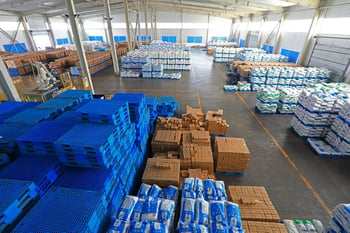 Even though warehouses don't manufacture food products but instead simply store and distribute them, all facilities covered by FSMA are required to maintain a written food safety plan that includes best practices for reducing or eliminating hazardous contamination.
Even though warehouses don't manufacture food products but instead simply store and distribute them, all facilities covered by FSMA are required to maintain a written food safety plan that includes best practices for reducing or eliminating hazardous contamination.
Preventive Controls
The bulk of FSMA compliance lies in establishing written and actionable preventive controls, which must be tailored to the specific hazards the food products might be exposed to. Some examples of preventive controls include:
- Process Controls — There should be written processes in place to provide temperature and humidity controls for food products, even allowing for alerts when readings fall outside acceptable ranges.
- Sanitation Controls — These are processes, practices, and procedures that endure a warehouse remains in a sanitary condition to prevent issues such as food allergen hazards, environmental pathogens, and problems related to the unsanitary handling of products.
- Food Allergen Controls — This should be a written program that supports standard operating procedures to ensure all products with allergens are handled appropriately so the warehouse prevents cross-contamination.
How Your Warehouse Can Comply with the FSMA
If your warehouse is subject to FMSA rules, that means the FDA can also show up for an inspection at any time of the day or night. While the agency generally tries to do inspections during normal business hours, they could do so whenever they wish. Here are some of the things your warehouse needs to do to be compliant with FSMA regulations.
1. Compliance Documentation
It's not enough that your warehouse is doing everything listed above. Documentation of every action and food safety program is vital to compliance with FSMA. If an inspector can't verify that your facility has done certain things, the assumption is that they haven't been done. FDA inspectors will be looking for documentation on paper of things like education and training and food safety plans.
2. Preventive Controls Oversight and Management
Once your facility identifies a preventive control for a potential hazard, it must ensure it is thoroughly addressing those controls. You can comply with FSMA by taking the following steps:
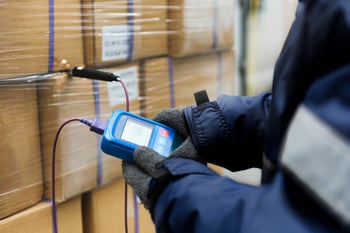
- Monitoring — Warehouses must create standard procedures aimed at monitoring each preventive control. For example, temperatures can be recorded in daily charts or using hand-written logs.
- Correction — Actions are specified for each exception to readings that fall outside the acceptable range. Some problems may be isolated and minor. Others will require major, corrective measures. Everything must be thoroughly documented.
- Verification — At specified intervals (quarterly or annually), all testing equipment should be calibrated and tested to ensure preventive controls are being implemented properly.
3. Supply Chain Program
It's vital that warehouse owners and managers develop strong relationships with suppliers of perishable products. This will facilitate more risk-based conversations about implementing various preventive controls throughout the supply chain. Using tracking systems like RFID tags and integrated software solutions can inject more visibility into this process, allowing supply chain partners to share data like product location, temperature, and humidity levels.
Food manufacturers and warehouse facilities must meet strict requirements to ensure that products remain safe for human consumption. The requirements established by the FSMA address quality, transparency, and visibility. By focusing on these items, your business can avoid problems and ensure a positive customer experience.











